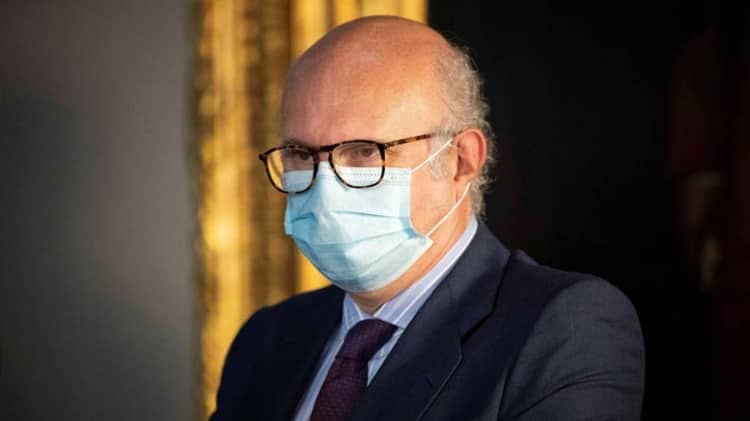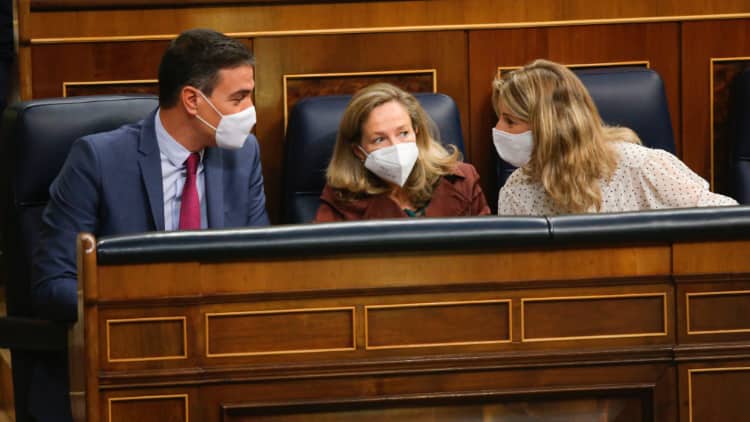The Diplomat
The State Secretary for Latin America, the Caribbean and Spanish in the World, Juan Fernández-Rigo, yesterday demanded to the Chargé d’Affaires of the Cuban Embassy in Madrid, Eumelio Caballero, that the Cuban authorities return the accreditations of the journalists of the EFE news agency in Havana.
The Castro regime decided on Saturday to withdraw the accreditations of the journalists, on the eve of today’s ‘Civic March’ called by opposition groups on the island, to demand the release of political prisoners and to call for a dialogue to resolve the “political, economic and social crisis” that the island is going through, among other things, according to its promoters.
Since the news broke, according to the Ministry of Foreign Affairs, the Spanish Embassy in Havana has taken steps to ensure that the journalists’ accreditations are returned to them.
Fernández-Trigo’s conversation with the Cuban Chargé d’Affaires took place by telephone, according to a statement from the Ministry of Foreign Affairs. Eumelio Caballero, a veteran diplomat who has been in charge of the embassy since the departure of the ambassador a few months ago, had been summoned to the Ministry today, Monday, to ask for explanations for what had happened, but he sent the Ministry a medical certificate from Covid, in which he stated that he would not be able to attend the meeting.
In view of this situation, the Secretary of State spoke to him by telephone to express Spain’s dissatisfaction with the measure taken against the EFE journalists and to formally request that their accreditations be returned to them.
In addition, the Spanish government asked the Cuban authorities to speed up the accreditation of the new EFE delegate in Havana, whose application was submitted several months ago.
The statement from the Ministry of Foreign Affairs also indicates that the government rejected the accusation that EFE works for foreign powers, while at the same time vindicating the work of the Spanish agency as an international reference point for information, as demonstrated by the repercussions obtained with the withdrawal of the accreditations of its journalists.
Hours after the conversation, the Castro regime returned the accreditations of two of the journalists -editor Laura Becquer and cameraman Felipe Borrego- following negotiations between the agency’s management and the body in charge of accrediting international reporters, the International Press Centre (CPI), as well as between the Spanish Embassy and the Cuban Ministry of Foreign Affairs.
The coordinator of EFE’s Havana bureau, Atahualpa Amerise, said on his Twitter account that the rest of the agency’s workers were still without accreditation and unable to work.
According to Amerise, CPI officials urgently summoned the EFE team in Havana – three editors, a photographer and a TV cameraman, as well as a collaborating photographer – to inform them of the withdrawal of their credentials, without clarifying whether this was a temporary or permanent measure. This decision, they were told, was taken on the basis of the so-called “article 1 of the final provisions of the regulations on foreign press agencies”.
The journalist indicated that they have not been able to find such an article and referred to another provision of the CPI regulations which justifies the withdrawal of credentials for “actions that are improper or alien to their profile and content of work, as well as when it is considered that they have failed to comply with journalistic ethics and/or do not conform to the objectivity of their dispatches”.
Amerise recalled that the agency has published in recent days an interview with the main leader of today’s outlawed opposition march, playwright Yunior García Aguilera. “We don’t know”, she said, “if it has influenced the Cuban government’s decision”.
The president of Agencia EFE, Gabriela Cañas, called on the Cuban government to “reconsider” its decision. “The EFE Agency is an objective and responsible media that has been reporting on the island for more than 40 years and does not understand the reasons for this measure,” she said on her Twitter account.
The European Union asked the Cuban authorities for “clarification” and described the measure as a “serious violation of freedom of expression”. The US State Department also condemned the withdrawal of the accreditations.
Amnesty International, Reporters Without Borders, the Federation of Spanish Press Associations (FAPE) and other journalists’ organisations also condemned the measure, as did some political parties such as the PP, through its Secretary for International Relations, Valentina Martínez.







